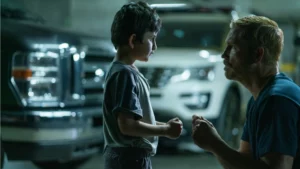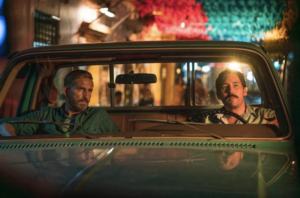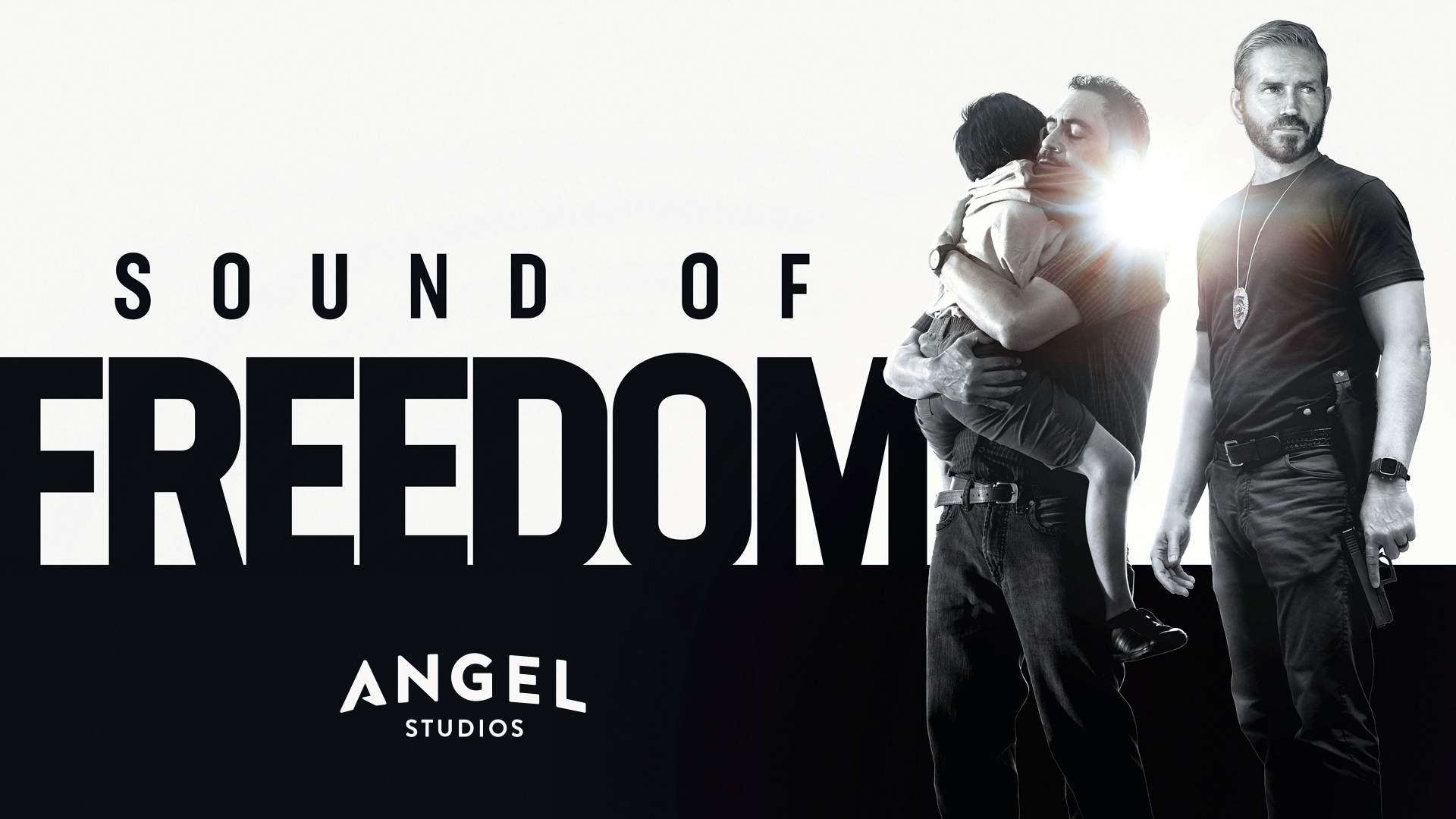Back in 2018 writers Rod Barr and Alejandro Monteverde had a vision, a dream of getting the story of Tim Ballard, and the children he freed out into the public. Unbeknownst to them, this wouldn’t become a reality until five years later when, after plenty of pushback, the film finally got its theatrical release. Based on a true story, Sound of Freedom follows Tim Ballard, a special agent for Homeland Security who plays an integral part in freeing a little boy from Honduras from being sex trafficked, only to find out his sister is still in that system. The story highlights Tim’s insane efforts, failures, and triumphs in successfully freeing her and dozens of other children along the way. Sound of Freedom, unsurprisingly, is an incredibly inspiring tale that I recommend you check out in theaters right now.
Though the two children are from Honduras, this story takes place in multiple Spanish-speaking locations, from Mexico all the way to Colombia. Perhaps one of my favorite aspects about this is the realism it creates. So much of the cast and crew behind this film are Latino, and this showed in every aspect of the script. Any time two characters are on screen, who aren’t American, they will be speaking Spanish. Meaning almost the entire first half of the movie is in Spanish. This is such cool representation that we often don’t get in mainstream movies. At most we usually get a mom calling her daughter Mija, but having full minutes-long conversations in Spanish isn’t common. It’s a unique way to tell a unique story.
So, let’s talk about the story. As one can assume, it’s disturbingly dark, and unlike most American films that deal with this type of subject with suggestive terminology, Sound of Freedom does its best to not shy away from the realities of trafficking. While they never explicitly show or explain the abuse, they don’t use vague words to convey what’s being done. The villains are frequently referred to as “pedophiles” and “sex traffickers” and the film makes a point of refusing to have a gray area when it comes to its perpetrators. They’re wrong, they’re cruel, and unfortunately, they’re prevalent.

It should be noted though, that this topic in film is not a rarity in other countries. In fact, in areas like Latin America and Eastern Europe, where trafficking is addressed more openly, these films are commonplace. And thematically, they’re actually much darker. Movies such as 2001s De La Calle or Cary Fukunaga’s Sin Nombre include explicit dialogue and show more of a graphic, realistic, representation of trafficking. In that regard, Sound of Freedom is representative of a watered-down, Americanized approach to the topic. Made for an audience who might not be familiar with child trafficking, and might not be able to stomach a film delving any deeper than this one does.
The Americanized viewpoint can certainly be seen in the way Sound of Freedom handles its child actors. In recent years, more and more child actors have come out and talked about how portraying certain roles, or being put in sexual situations, even when they didn’t realize, was traumatizing to them. I was happy to see that even though the kids are portraying trafficked victims, their scenes are short and barely suggestive. Never physical, and never a literal description of what’s about to happen. Mostly a direction to look sad, or a person leering at them for a moment to suggest to the adult audience what’s going to happen. In this way, the kids don’t actually need to know what their characters are going through and I really appreciated this. They’re children after all, if you can get the point across without being blunt, you should strive for that and this film deserves praise for doing so masterfully.
Sound of Freedom does an amazing job of bringing trafficking, something no one wants to think about, to the forefront of our minds. In the first five minutes, the film shows how this could happen to anyone. I’m not going to lie, this movie is a tough watch. I cried multiple times, and the realities of this situation. The fact that there are people in slavery at this very moment, little kids hurting probably only a few miles from me is heartbreaking. But bringing awareness and watching this is a huge step forward.

In fact, the film says as much during the end credits with a “Special Message” announcement, accompanied by a two-minute countdown on the screen. If you wait, and I encourage you to do so, you’ll be greeted by Jim Caviezel, the actor who portrays Tim Ballard, explaining, “I want to make one thing clear. This movie you just watched isn’t about me, or Tim Ballard–it’s about those kids. This film was actually made five years ago, it wasn’t released til now with every roadblock that you can imagine being tossed in the way. And the names you see here on the screen took a stand. And they made sure this story could be shown to all of you. And now all of you have the opportunity to continue telling this story. We don’t have big studio money to market this movie, but we have you. And the baton has now been passed to you.”
Though originally shot for 21st Century Fox, just a year after filming, the studio was acquired by Disney, who refused to release it. Instead, after five years Sound of Freedom was forced to go indie and found solace in Angel Studios, a small media company that bravely released the film. Giving it the theatrical debut it deserved. To some, it may sound silly to hear that Special Message, and hear an actor speak about how courageous it was that a film merely be released to the public. However, sex trafficking is a huge thing. Bigger than you probably think. Right now, there are more people in slavery than at any other time in history. Including when slavery was legal. And yet, barely any forms of media in America touch on it. For that alone, on top of doing it in such a beautiful and unique fashion, this film deserves some praise.
My only gripe, just as someone who loves representation and studied film, is that technically this is a white savior movie. For those of you who are unfamiliar with the concept, a white savior movie is a film trope in which a story will center the white character as the savior of a Person of Color who oftentimes gets less screen time and is less humanized. Think of films like The Blindside or The Help. Though not necessarily bad, there are plenty of other stories where POC are the heroes of their own tales. Despite Caviezel’s words, Sound of Freedom isn’t about the children Tim saved, but rather his story and how he saved them. That being said, this doesn’t mean Sound of Freedom is a bad movie at all. It’s an important story that deserves to be told, and Ballard’s relevance to the US makes the story more relevant to Americans. Not to mention, going the extra mile in having characters Speak Spanish a majority of the time, and not treating Ballard as some mythical god for having a good heart goes a long way in counteracting the overall negatives of this trope.

And this is hard to do as, unlike films like The Help, Ballard is a real person who did actually save children from slavery. He is technically a white savior in the narrative, but that doesn’t make the narrative biased it just is the reality of the situation. What’s more important than the semantics of whether or not it fits into the trope is that it’s bringing awareness to a monumental cause.
And bring awareness it did, while being wildly entertaining I might add. Though tough to watch, this story also is insane. I understand why they would make a film out of Tim Ballard’s life, it’s almost unbelievable even knowing it’s true. So, if you’re interested in watching a wild, albeit, incredibly important film. I suggest you check out Sound of Freedom in theaters right now.
You can find tickets for Sound of Freedom here.











